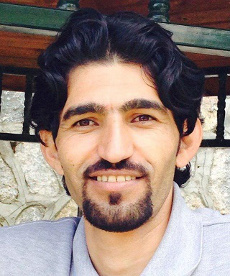Iran Legal Expert: Judiciary Must Halt Drug Executions Now
1/20/17 • Categorized as News
Iranian legal expert and practicing lawyer Paymon Hajj-Mohammad Attar has made the case for immediately halting executions of the country’s drug offenders. His arguments, made in the course of a January 19 interview with Khabar Online, invoke the principle of “dara,” according to which the carrying out of hadd sharia punishments (such as the death penalty handed down to the country’s drug offenders for charges of “corruption on earth”) are to be stopped in cases where judges have doubts. Hajj-Mohammad Attar argues that all outstanding drug cases should be re-investigated in light of a pending Majles measure which would greatly limit the judiciary’s use of the death penalty, so that “innocent blood will not be spilled.”
Excerpts of the interview translated by ABF appear below:
—
 -Legally speaking, why is it that some experts are saying that the execution of drug traffickers should be halted?
-Legally speaking, why is it that some experts are saying that the execution of drug traffickers should be halted?
Just as we’ve heard in the mass media, two months ago the general session of the Majles confirmed a measure affirming the urgency of reforming the anti-drug bill, which was evidently also confirmed by the relevant commission. It will shortly go out from the Majles to the Guardian Council for final approval. It appears that passage of this law ought to prevent the executions of a great many of those now convicted… Owing to the “creation of doubt” part of the dara principle, the head of the judiciary ought to issue an urgent, decisive order on the carrying out of sentences from prosecutors all over the country on the basis of preventing or stopping the execution of those condemned on drug charges, so that after the Guardian Council determines what is finally to be done, lighter sentences can be enforced in these individual’s cases with reference to the newly confirmed policy by the sentencing court or the Supreme Court – saving a great number of this country’s young people from the punishment of deprivation of life…
-How much would a decrease in executions help out Iran’s international image?
In 1988, at the same time as the Assembly approved the anti-drug law, the Majles approved the Government Annex Law to the Convention Against Illicit Traffic in Narcotic Drugs and Psychotropic Substances. The Annex law was further approved by the Guardian Council. Article 1 of this law states that the government is authorized to join the Convention, conditional on the content of the convention not conflicting with Iran’s domestic laws and codes… Article 1 of our annex law to this convention does not authorize the execution of individuals who have not undertaken widespread trafficking activities, in light of the fact that it is not congruent with sharia law.
Moreover, in terms of international covenants: Article 2 of the Covenant on Civil and Political Rights, which Iran has joined with parliamentary approval, specifies that member states’ domestic laws ought to conform with the Covenant’s contents. Additionally, Iran is condemned year after year in the UN Human Rights Council and other international bodies for these sweeping executions of drug traffickers, with reference to the Civil and Political Rights covenant, other international covenants, and other governing regulations. The last condemnation came two weeks ago, approved and announced by the UN General Assembly. All these reasons justify stopping the execution of present drug convicts and the necessity of a swift, emphatic order from the head of the judiciary to stop the implementation of these people’s capital sentences so that their cases can be taken up again in light of the new law.
Read the text of the original Persian article at Khabar Online.





 My Interrogator Said: You Are An Ass, And Asses Do Not Merit Human Rights
My Interrogator Said: You Are An Ass, And Asses Do Not Merit Human Rights